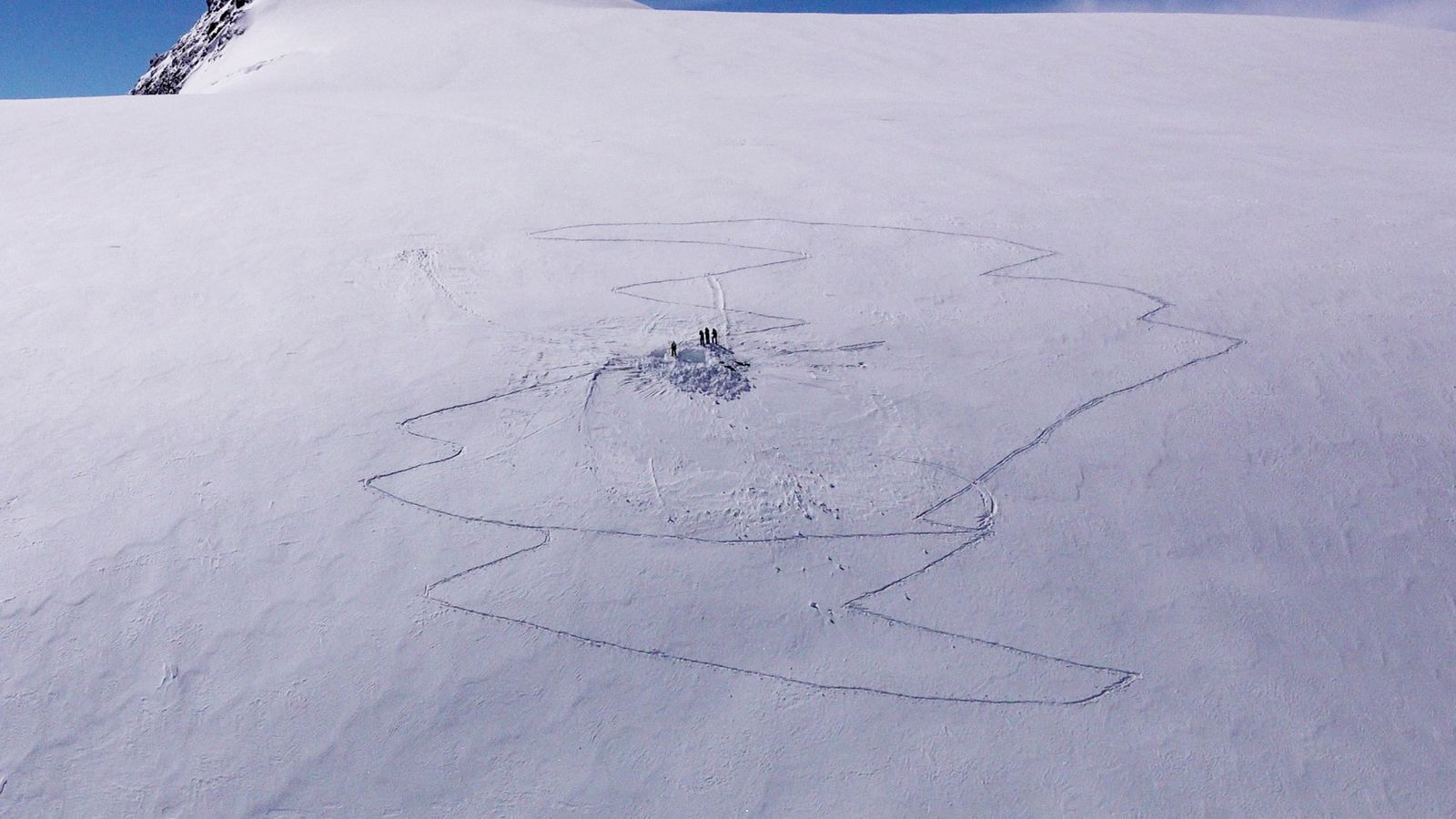A group of skiers who went missing in the Swiss Alps tried to dig “snow caves” to save themselves from the freezing temperatures, a lead rescuer has told Sky News.
Anjan Truffer, the head of mountain rescue at Air Zermatt AG, was on site when the bodies of five cross-country skiers were found on Sunday in the area of the Tete Blanche mountain after they were reported missing the day before.
The search for a sixth person is still ongoing.
Mr Truffer said his team was delayed getting to the accident site near the Matterhorn mountain – one of the best-known in the Alps – due to snowstorms, and when he arrived, his French counterparts had discovered two bodies.
“We started to look for the others with avalanche transceivers and probes and we immediately discovered two more bodies,” he said.
In helicopter footage released by police in Valais canton, ski tracks can be seen on the side of a mountain as well as small piles of snow which Mr Truffer said are believed to be “snow caves” that the skiers attempted to dig for protection.
“They were snowed in,” he said, adding: “They did try to make a snow cave to protect themselves from the wind.”
He said one of the problems the group had was a lack of proper equipment, with only “small and light” shovels.
“With this equipment you can’t manage to keep up if the snow is coming down really quickly,” he said.
Skiers were ‘dressed quite lightly’
The six skiers – five of whom are members of the same family – set off on Saturday on a ski tour from the Alpine town of Zermatt, Switzerland, with the aim of reaching the town of Arolla.
They are believed to have been aged between 21 and 58, but none have been officially identified by authorities.
Mr Truffer said the skiers were also “dressed quite lightly” and it is believed they were training for a race before getting into difficulty.
Read more from Sky News:
Looking back at Princess of Wales’s photography
Boeing whistleblower found dead
Private jet and yachts seized in £76m luxury care homes raid
With the search ongoing for the sixth missing person, Mr Truffer said everyone involved in the mission needs to be “realistic” about the outcome.
“We could continue to search for another week without any luck,” he said, adding that it is very difficult to know what the best methods to use were going forward.
“Travelling on foot in these conditions on a glacier, you won’t get very far,” Mr Truffer said.
“Maybe this person fell into a crevice. Maybe they got knocked over by the wind and got snowed in. It is very hard to say.
“It is the most horrendous thing to happen to a family when you don’t find a body at the end. It is difficult.”
This story originally appeared on Skynews




